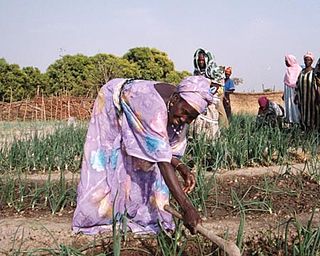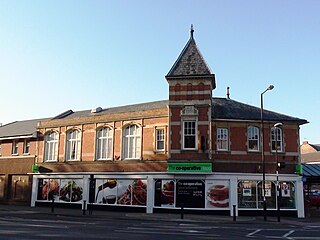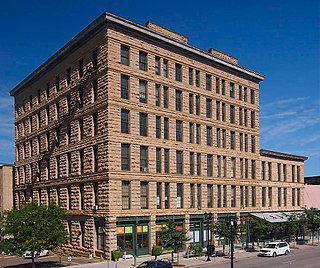Related Research Articles

A cooperative is "an autonomous association of persons united voluntarily to meet their common economic, social and cultural needs and aspirations through a jointly owned and democratically-controlled enterprise". Cooperatives are democratically controlled by their members, with each member having one vote in electing the board of directors. Cooperatives may include:
Demutualization is the process by which a customer-owned mutual organization (mutual) or co-operative changes legal form to a joint stock company. It is sometimes called stocking or privatization. As part of the demutualization process, members of a mutual usually receive a "windfall" payout, in the form of shares in the successor company, a cash payment, or a mixture of both. Mutualization or mutualisation is the opposite process, wherein a shareholder-owned company is converted into a mutual organization, typically through takeover by an existing mutual organization. Furthermore, re-mutualization depicts the process of aligning or refreshing the interest and objectives of the members of the mutual society.

The Mondragon Corporation is a corporation and federation of worker cooperatives based in the Basque region of Spain.
A worker cooperative is a cooperative owned and self-managed by its workers. This control may mean a firm where every worker-owner participates in decision-making in a democratic fashion, or it may refer to one in which management is elected by every worker-owner who each have one vote.

The Consumer Federation of America (CFA) is a non-profit organization founded in 1968 to advance consumer interests through research, education and advocacy.
The social economy is formed by a rich diversity of enterprises and organisations, such as cooperatives, mutuals, associations, foundations, social enterprises and paritarian institutions, sharing common values and features:

An agricultural cooperative, also known as a farmers' co-op, is a producer cooperative in which farmers pool their resources in certain areas of activity.
The International Cooperative Alliance (ICA) is a non-governmental cooperative organization founded in 1895 to unite, represent and serve cooperatives worldwide. The ICA is the custodian of the internationally recognised definition, values and principles of a cooperative in the ICA Statement on the Cooperative Identity. The ICA represents 315 co-operative federation and organisations in 107 countries.

A consumers' co-operative is an enterprise owned by consumers and managed democratically and that aims at fulfilling the needs and aspirations of its members. Such co-operatives operate within the market system, independently of the state, as a form of mutual aid, oriented toward service rather than pecuniary profit. Many cooperatives, however, do have a degree of profit orientation. Just like other corporations, some cooperatives issue dividends to owners based on a share of total net profit or earnings ; or based on a percentage of the total amount of purchases made by the owner. Regardless of whether they issue a dividend or not, most consumers’ cooperatives will offer owners discounts and preferential access to good and services.

An artist-run space or artist-run centre (Canada) is a gallery or other facility operated or directed by artists, frequently circumventing the structures of public art centers, museums, or commercial galleries and allowing for a more experimental program. An artist-run initiative (ARI) is any project run by artists, including sound or visual artists, to present their and others' projects. They might approximate a traditional art gallery space in appearance or function, or they may take a markedly different approach, limited only by the artist's understanding of the term. "Artist-run initiatives" is an umbrella name for many types of artist-generated activity.

Cooperative banking is retail and commercial banking organized on a cooperative basis. Cooperative banking institutions take deposits and lend money in most parts of the world.

Cooperative economics is a field of economics that incorporates cooperative studies and political economy toward the study and management of cooperatives.
The history of the cooperative movement concerns the origins and history of cooperatives across the world. Although cooperative arrangements, such as mutual insurance, and principles of cooperation existed long before, the cooperative movement began with the application of cooperative principles to business organization.

The Traffic Zone Center for Visual Art (TZCVA) is an artist cooperative located in the historic Warehouse District of downtown Minneapolis, Minnesota, United States. Founded in 1993, TZCVA was established to create an artist-owned and managed building that provides stable, safe, and affordable studio, teaching and exhibition space for mid-career visual artists. TZCVA is a partnership between Artspace Projects, Inc., a leading national non-profit real estate developer for the arts, and a cooperative of 23 artist-members.

Community wind projects are locally owned by farmers, investors, businesses, schools, utilities, or other public or private entities who utilize wind energy to support and reduce energy costs to the local community. The key feature is that local community members have a significant, direct financial stake in the project beyond land lease payments and tax revenue. Projects may be used for on-site power or to generate wholesale power for sale, usually on a commercial-scale greater than 100 kW.

The South Korean National Agricultural Cooperative Federation was established in 1961 to enhance the social and economic status of its membership and to promote a balanced development of the national economy. Its role is divided into three areas: marketing and supply, banking and insurance, and extension services.
CooperationWorks! is a network of organizations promoting rural development through the formation of cooperatives in the United States. CooperationWorks! is organized as a cooperative of 21 member development centers. The co-op facilitates the coordination of cooperative development efforts and provides business expertise to its member organizations.
The Master of Management: Co-operatives and Credit Unions (MMCCU) is a master's degree in co-operative and credit union administration. The degree is currently offered solely through an international program at the Sobey School of Business at Saint Mary's University in Halifax, Nova Scotia. The program is designed for students entering business management and degree applicants come from diverse academic disciplines.
References
- ↑ International Co-operative Alliance Statement on the Co-operative Identity Archived 2012-02-04 at the Wayback Machine .
- ↑ Small Farm Center, University of California Archived March 5, 2009, at the Wayback Machine .
- ↑ National Cooperative Business Association Archived February 18, 2009, at the Wayback Machine .